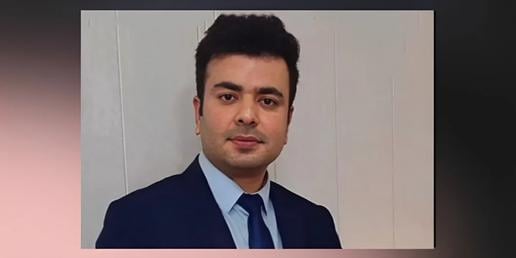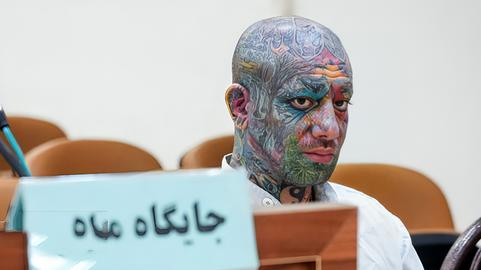How is beauty defined? What pressures do women face when trying to live up to these definitions and established standards? A Facebook page called “Iranian Women Up Close” has taken on these questions and concerns, offering a place for women to debate the concept of beauty and share their experiences.
Recently, the page’s administrators sent out an unusual call. Responding to the huge trend for cosmetic surgery among Iranian women — and Tehran’s reputation as the “nose job capital of the world” — they launched “Pictures of my Natural Nose,” asking women to post photographs of their noses as a protest against a certain definition of beauty.
IranWire talked to Maryam, one of the founders and administrators of “Iranian Women Up Close” about the inspiration behind the campaign and what she discovered.
How did the campaign come about?
We were talking with some friends about the conventions and the standards of beauty in various subcultures, about how it is possible for individuals in a multicultural society or a metropolis to live next to each other and have different interpretations of beauty. Each individual or group applies these concepts to their interactions with people and their relationships. We decided to bring our readers into the discussion, presenting them with a tangible topic.
If I remember correctly, I read it in Alex Haley’s book Roots that when the African black people first saw European white people, they considered them to be a pale and ugly race; and that they believed that wide noses were the hallmarks of beauty. Of course, there is no need to remind ourselves of how, for centuries, black people (and other races) have been humiliated because of how they look.
With the passage of time, there has been a decline in racist and humiliating social norms.
But something else has happened too. Little by little, there has been a decline in the variety of tastes and preferences. It has been said that the “culture industry” makes decisions about the appearance of the masses. “Beauty” has been reduced to certain clichés for all, even on an international scale.
Where do these clichés came from?
The issue is not limited to nose jobs. At some point, “wide eyes” became popular in Japan. In Malaysia, all kinds of skin-whitening creams are popular. A certain “hegemonic,” “standardized” and “normalized” look is promoted throughout the media, in line with the interests of the cosmetics industry. It appears to be trying to force us into a narrow framework, so that if we don’t look like prevalent and dominant types of women, we feel we are missing something. In the midst of this, sometimes it’s easy to see the pressure to respond to a “lookalike” competition. It’s not surprising that Tehran has come to be known as the “nose job” capital of the world. Why does this eagerness for cosmetic surgery and for changing one’s appearance exist in Iran? How much of it comes from within and not from the pressures of the environment and the conventions that I mentioned?
That’s why we decided to put the question to our readers — to encourage them to participate in the discourse.
How was it received?
We did not expect such large numbers of people to like and follow the page. We received many photographs each day, with intense discussions about the photos taking place in the comments below, both for and against. Of course, our goal was to create a space for discussion, to contemplate the dominant cultural and social environment — and not to issue a verdict against cosmetic surgery or to draw a line between those who have done it and those who have not, though some people have suggested that this is what we were trying to do.
So there were negative reactions as well?
Yes. In general, the critics believed that the idea “yielded to a male narrative that reduces a woman to her nose and makes fun of her.” One blogger worried that what we were doing was reproducing the discourse of violence and humiliation and that we were marginalizing certain views. This idea of good “us” versus bad “them” was certainly not our intention. Our intention was for the individual to be free of external pressures and the impositions of society, that the individual could stand up against ideas that force her to yield to a certain definition of beauty and a certain choice.
But most of the photographs are of well-proportioned noses.
Yes. Some of those who sent pictures have natural noses that fit with the so-called perceived “standards” and do not “need” surgery. But I emphasize that our intention was not to draw lines. The main goal of “Iranian Women Up Close” is to enlighten and inform about concepts and news items that concern women. Along the way and once in a while we will present such collective challenges to kick-start discussions in the public arena, with participation from our readers.
Does the fact that you object to conventional standards and to all the trouble that women go through to become more beautiful mean that you are against any kind of manipulation of physical characteristics?
We believe that people should be able to decide freely and knowingly, even if they want to make themselves “ugly” by collective standards. The important thing for us is that different voices must be heard, especially non-hegemonic discourses relating to women. We are not after imposing or humiliating a certain outlook, but we believe that different viewpoints must have a chance to be heard and critiqued.
Through private messages or public postings, many Facebook friends have complained about jokes and ridicule about their noses — these comments have sent them to the operating room, in contradiction against their own desires. Many have also correctly pointed out that nose jobs have become popular among men as well. But considering the subject matter of the page, we decided to focus on women. Why has a certain definition of beauty become de rigueur, a “need”, for women? How does a feeling of having “shortcomings” get created, or inflated, growing into a feeling of “need”? What we object to are dogmas that control our lives publicly or privately. If “keeping the face natural” itself becomes a dogma, then it is going to be open to objections and criticisms as well.
How many photographs of “natural noses” have you received so far?
Up to now about 300 people have shared their pictures, but even more hundreds have contacted us to express their support.
So you look at the question of human beauty from the viewpoint of absolute freedom of choice?
We believe that nobody can own the body of another person or force a decision on that person. We respect freewill. But there is one question: How much of this will is actually free and conscious and how much originates from hidden or explicit social pressures? We believe that we must respect different faces and we must not humiliate anybody because her face does not conform to “standards.” In this way, we are trying to help expand the space for real decision-making by people, including decisions about how they look.
Originally published on 1st June 2015

























comments